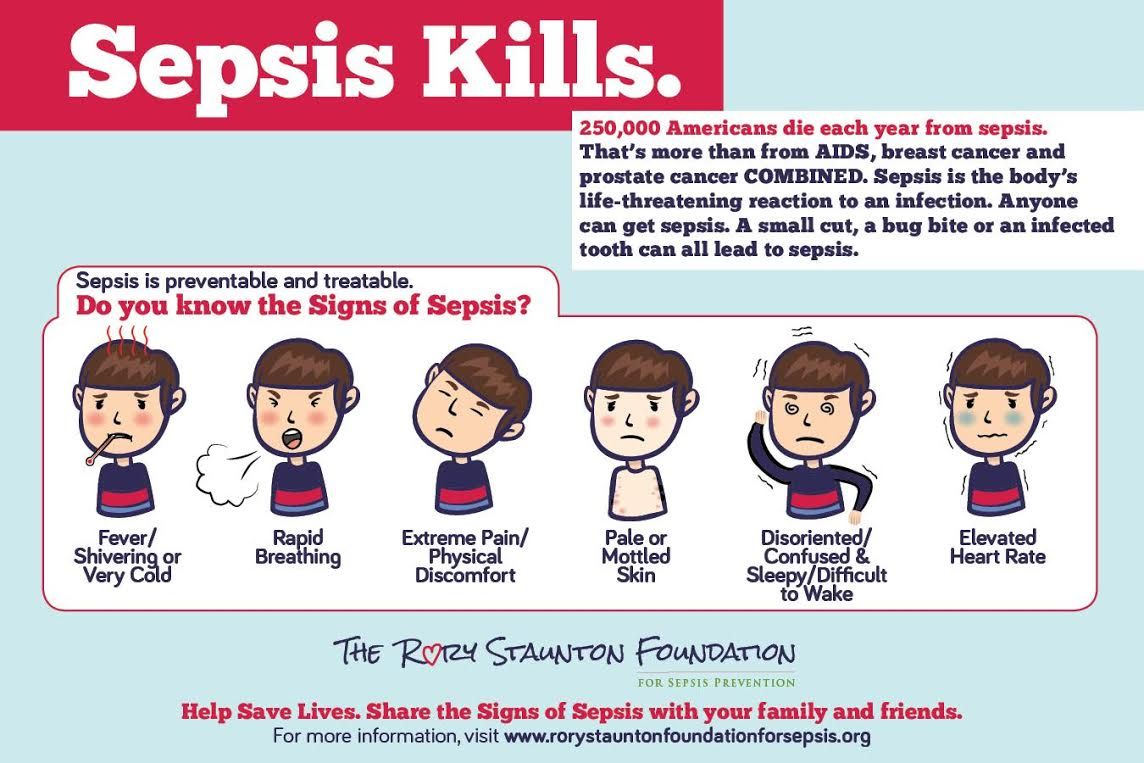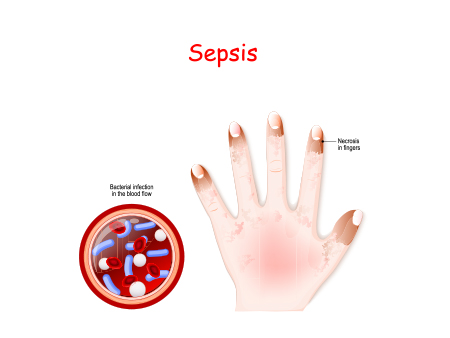
Septicemia is an infection that can affect any part of the body. It can happen after surgery or from an infectious disease. When this happens, the immune system cannot control the infection. The prevalence of septicemia has increased with the development of antibiotic-resistant bacteria and invasive medical procedures. Physicians will ask you about your symptoms and medical history to determine if you have septicemia. Certain tests for the immune system will also be performed.
If you think you are suffering from septicemia, you should immediately seek medical attention. Your doctor will run several tests to determine the severity of your condition. The most common septicemia symptoms are: skin lesions that are fluid- or pus-filled. Your body may also have a red, inflamed area underneath the skin. It is known as cellulitis and can spread rapidly. Besides the skin, other signs and symptoms of septicemia include digestive problems, ulcer formation, coughing up blood, and liver damage.
When the bacteria from an infection enter the bloodstream, they can cause serious infections. In these cases, secondary infections may arise in the hospital and are more severe and antibiotic-resistant. Therefore, the diagnosis of septicemia is a complex process. In some cases, doctors may not even be able to diagnose the disease. However, the symptoms of septicemia can help the doctors in treating it. There are many treatments for septicemia.
If you are experiencing any of the symptoms mentioned above, see your doctor immediately. Your doctor will evaluate your symptoms and the condition of your body. A physical examination will detect any changes in your temperature or blood pressure. They may perform blood clotting tests and order various lab tests. They will also check your vital signs to rule out other medical conditions. If you are concerned that you might be suffering from septicemia, your doctor will start with treatment.
Septicemia symptoms may include a variety of other infections, including those in the blood. This is a type of infection that is caused by bacteria in the blood. In most cases, the bacteria are antibiotic-resistant and are resistant to the antibiotics. If you have any of these symptoms, your doctor will run tests to find out the underlying cause of the infection. Septicemia is a serious complication of an infection, but it can be treated with medications.

The most important Septicemia symptoms are a fever and blood clots. If you have a fever, you may have septicemia. Symptoms of Septicemia include redness and low blood pressure. In addition, you may have red spots on your skin, indicating bleeding. Septicemia can lead to severe complications, including mental confusion and shock. Your doctor should monitor these symptoms to determine the cause.
The most common septicemia symptoms are a tachycardia, rapid breathing, chills, and a change in mental status. If you develop these symptoms, you should consult your doctor immediately. The symptoms of septicemia can range from mild to severe and can affect any part of the body. Your doctor will perform a variety of tests to determine the cause and treat your septicemia. They can also determine if there is any evidence of bacterial infection.
Symptoms of septicemia are similar to those of other bacterial infections. If you suffer from these symptoms, you should contact your doctor immediately Danita Benavante. You should take antibiotics as soon as possible. In addition to visiting your doctor, you should also stay away from sick people. It is very important to keep your children vaccinated on time. This will protect them from septicemia. If you or someone you know is suffering from sepsis, it is important to seek medical help.
Bacterial infection is the main cause of septicemia and should be treated as soon as possible. It is very important to maintain a strong immune system and avoid bacterial infections. Taking good care of yourself can help protect you and your loved ones. Make sure your child gets regular vaccinations and avoid contact with sick people. Sepsis is a serious bacterial infection. If you suffer from any of these symptoms, you should seek medical help immediately.
Sepsis is a serious bacterial infection. In severe cases, the patient may develop septic shock, a condition in which blood pressure is very low. It is difficult for the body to fight infection, and it is very important to prevent this. This can cause a serious drop in blood pressure. When a person is in septic shock, they may be unconscious and require a ventilator.